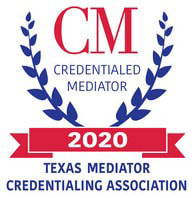All ADR Mediations are done via Zoom, Click the link below for more details |
|
We accept the following cases/topics
Family Law Disputes: This includes child custody, divorce proceedings, and child support order modifications;
Neighbor Disputes: This includes frequent noise ordinance violations and issues with Homeowners’ Associations;
Workplace Disputes: Some examples of workplace or employment disputes include wage and hour disputes, and workplace harassment;
Business Disputes: Examples include contract disputes and business debt;
Housing Disputes: Examples include a landlord failing to maintain a habitable residence and housing discrimination;
Personal Injury Disputes: Examples include medical malpractice cases and motor vehicle collision cases;
Consumer Contract Disputes: This can include product liability and warranty claims; or
Environmental Disputes: Examples include toxic waste dumping and air pollution.
Neighbor Disputes: This includes frequent noise ordinance violations and issues with Homeowners’ Associations;
Workplace Disputes: Some examples of workplace or employment disputes include wage and hour disputes, and workplace harassment;
Business Disputes: Examples include contract disputes and business debt;
Housing Disputes: Examples include a landlord failing to maintain a habitable residence and housing discrimination;
Personal Injury Disputes: Examples include medical malpractice cases and motor vehicle collision cases;
Consumer Contract Disputes: This can include product liability and warranty claims; or
Environmental Disputes: Examples include toxic waste dumping and air pollution.
How Texas Mediation Works
Link to Instant Mediations Site
To Summarize the Advantages of Mediation:
a) Mediation is voluntary. You can stop the process at any time.
b) You remain in control of the decisions, not a lawyer or judge. You decide on the issues and how to resolve them. You decide when to meet and for how long.
c) Mediation is totally confidential. Court rooms are open to the public.
d) You can be more creative in mediation, rather than making your situation fit into the laws. This applies to parenting plans, division of financial assets and calculating support payments (if any).
e) Mediation is cost-effective. A typical legal bill is between $40,000 and $80,000. A mediated divorce will cost between $1,000 and $10,000, depending on complexity.
f) You only sign the mediated agreement if you feel it is a fair and equitable outcome. Lawyers are not orchestrating the terms of your agreement.
Even a litigated divorce may require mediation if no settlement is reached before the trial date. The big difference is the months or years of dueling attorneys and battles beforehand. Mediate early and save money, time and pain.
a) Mediation is voluntary. You can stop the process at any time.
b) You remain in control of the decisions, not a lawyer or judge. You decide on the issues and how to resolve them. You decide when to meet and for how long.
c) Mediation is totally confidential. Court rooms are open to the public.
d) You can be more creative in mediation, rather than making your situation fit into the laws. This applies to parenting plans, division of financial assets and calculating support payments (if any).
e) Mediation is cost-effective. A typical legal bill is between $40,000 and $80,000. A mediated divorce will cost between $1,000 and $10,000, depending on complexity.
f) You only sign the mediated agreement if you feel it is a fair and equitable outcome. Lawyers are not orchestrating the terms of your agreement.
Even a litigated divorce may require mediation if no settlement is reached before the trial date. The big difference is the months or years of dueling attorneys and battles beforehand. Mediate early and save money, time and pain.
Texas Law Mediation
Texas Law describes Mediation as “a forum in which an impartial person, the mediator, facilitates communication between parties to promote reconciliation, settlement, or understanding among them. A mediator may not impose his/her own judgment on the issues for that of the parties. The word mediation comes from the word middle because there is a person in the middle, the mediator who will help the parties reach a mutually satisfactory agreement.
Here are references to mediation in the code itself:
Here are references to mediation in the code itself:
WHY CHOOSE A Mental Health Professional AS A MEDIATOR?
Many mediators have a legal background or are attorneys, so why choose a mental health professional as a mediator? First, when acting as a mediator, attorneys are ethically not allowed to give legal advice. They do bring a special skill set to mediation — attorneys are trained to spot legal issues, apply rules to facts, and draw conclusions. Sometimes mental health professionals work with attorneys.
A mental health professional mediator is uniquely trained to help families through difficult, emotionally charged situations such as a divorce, resolve disagreements and disputes, and lay the groundwork for an improved on-going relationship between the parties and their families after the divorce is over.
Clients often bring strong emotions to the mediation process, which can interfere with the productive resolution of issues. People want to be heard. It’s the reason why so many people say, “I just want my day in court.” Mental health professionals are trained to closely follow a client’s narrative and listen to their stories. Therefore, the skills of a mental health professional make it less likely that the mediator will become impatient with a disputant’s pace or attempt to rush the process. Moreover, whereas attorney mediators tend to focus on the content of communication during mediation, a mental health professional is trained to simultaneously attend to content and process of communication during mediation. The pain that people experience during divorce usually has more to do with the inherent adversarial nature of a traditional divorce, rather than the loss of the relationship.
Dealing with loss and grief is almost always a part of disagreements between family members – loss of relationship, loss of a dream, loss of identity, loss of social relationships, loss of financial security, etc. Beginning to come to terms with loss is an essential precondition for reaching a compromise in any dispute. Mental health professionals are trained in helping people find meaning and dignity in their experience so that they can come to terms with loss and grief. Utilizing a mental health professional mediator allows for an openness that vastly improves the likelihood of successful mediation.
Because dispute resolution for families is outlined as an appropriate role for a mental health professional in the state of Texas licensing rules, family mediation services may be an excellent option.
Helpful Forms and Checklists
| texas_agreed_order_to_mediate.pdf | |
| File Size: | 104 kb |
| File Type: | |
| texas_agreement_to_mediate.pdf | |
| File Size: | 137 kb |
| File Type: | |
| texas_checklist.pdf | |
| File Size: | 109 kb |
| File Type: | |
| texas_client_preparation_form.pdf | |
| File Size: | 160 kb |
| File Type: | |
| texas_suggestions.pdf | |
| File Size: | 113 kb |
| File Type: | |
| texas_online_mediation_consent_form.pdf | |
| File Size: | 143 kb |
| File Type: | |
WHAT IS MEDIATION?
Mediation is an alternate dispute resolution process and compulsory step stipulated by the Family Law Act to get couples in a family law dispute to negotiate an outcome that is agreeable to both of them. It is a process facilitated by family law mediation, (neutral third party), but the couple controls the outcome. However, invariably it is the case, that if a couple choose to litigate their family dispute, the family law mediation step is seen as a formality and this approach undermines a process that can ultimately bring a resolution to the conflict, saving significant time, significant legal fees, and outcomes that are likely not satisfactory to either person.
WHY MEDIATE & NOT LITIGATE?
Rarely is the case that couples who litigate their family law matters are happy with the outcome. Why? Because the involvement of lawyers invariably can lead to issues becoming both more complex and more emotionally-charged. This means that resolving your family dispute can become very expensive. Notwithstanding this, it’s likely that the final outcome, neither person is happy about. It’s well-reported that resolving your family law matters with lawyers will cost on average, between $40,000 and $80,000 and will take approximately 3.5 years. In contrast, a family law mediation with WHWC Mediations will cost each person, in the vicinity of $400 and will take up to four hours.
WILL MEDIATION WORK FOR US?
Yes! Providing both of you acknowledge that the alternative is litigation of which is likely too much more emotionally draining, time-consuming, expensive and the imposition of an outcome that neither of you is likely to find the most suitable. Secondly, you need to come to the table leaving some baggage behind and a willingness to work things out together. Yes, it’s not a walk in the park, but our experienced Family Law Mediation will likely be able to move things to a point of which you previously didn’t think was possible!
HOW DOES FAMILY LAW MEDIATION WORK?
Well, it can work in a variety of ways that best suits your circumstance and of course, how amicable you and your ex-partner already are. For example, you and your ex-partner may have collaboratively agreed that the relationship no longer worked and now you both just want to tie up the loose ends in a way that those agreements are binding. If you have both received independent legal advice or you haven’t yet or intend to, a Family Law Mediation can see both you and your partner together and provide an initial information session covering the mediation process. Alternatively, if you are already engaged in the legal process to resolve your family law matters, but now wish to draw into an end through alternate dispute resolution, then you can request mediation or simply ask us to do this on your behalf. We can then interact with your family lawyer.
WHAT DOES FAMILY LAW MEDIATION COST?
Significantly cheaper than trying to resolve your family dispute with lawyers. A family law mediation will cost $400.00 for each person. This is a fixed-fee regardless of whether the mediation takes 2 hours or 4 hours. If you’re unaware at this point what the alternative costs are, consider that your family lawyer’s fees will be in the vicinity of $350 – $600 per hour, which very quickly can amount to tens of thousands of dollars if your family law matter lingers on, which most do when lawyers are involved. Not to mention, if your matter ends up in court, prepare to pay just for the preparation and first court date $6,000 to $12,000 or more in legal fees, not to mention court fees. Remember, the time to get to court is usually 12 months to 2 years later, of which legal fees accrue (sometimes up to hundreds of thousands of dollars) and the relationship between all involved becomes much more toxic and anger-fused.
IF WE COME TO AN AGREEMENT, IS IT LEGALLY BINDING?
Absolutely! A signed settlement agreement is as enforceable as any other contractual agreement. However, some Family Law mediation agreements must be lodged with a court to be recognized. Your Mediators will be able to advise you on this and at WHWC Mediation Services, we will have the agreement constructed, perused by one of our lawyers and lodged in the Court on behalf of both you and your ex-partner.
WHAT HAPPENS IF WE CANNOT AGREE DURING MEDIATION?
A small number of couples who choose to do family law mediation, unfortunately, are unable to agree on all matters. However, if there is agreement on some matters, these can be enshrined in an agreement that is legally enforceable. For those matters unable to be mediated successfully, it may be the case that there is better clarity of the sticky-points that will allow you or your ex-partner to consider them with a little more time and choose to return to the mediation table at a later point. Alternatively, you may now wish to seek some legal intervention having benefited from identifying the key issues preventing resolution and isolating legal focus on those points alone. We can connect you to one of our Collaborative Lawyers.
HOW DO WE START THE MEDIATION PROCESS?
Our Accredited and experienced family law Mediators offer you and your partner, a free initial consultation. This can occur in a number of ways, either individually in-person, via our state-of-the-art video technology or by phone. Alternatively, this free initial appointment can occur with both of you present, again either in-person, video or phone. The latter option works really well if you and your ex-partner have moved beyond the raw emotions and now just want to sort out the details and iron out an agreement.
What Happens If I Don’t Want to Do It?
At the outset, there are circumstances in which mediation is not appropriate and we will detail them further in this article.
In the United States and throughout the World there is a growing acknowledgment that litigation does not work, but for the very few who have no other alternative. Litigation is often lengthy, costly, has little regard of the emotional impact of all involved and invariably hands down judgments that no-one typically is happy with, but have no other choice but to live with. Conversely, collaborative law, mediation, and arbitration are all ways in which you and your ex-partner are able to play very active roles in how your family law dispute is negotiated and the middle ground that you both are willing to agree to. That said, there are no winners or losers in mediation either, but you will walk away when successful spending significantly less time and money than the alternative.
In the United States and throughout the World there is a growing acknowledgment that litigation does not work, but for the very few who have no other alternative. Litigation is often lengthy, costly, has little regard of the emotional impact of all involved and invariably hands down judgments that no-one typically is happy with, but have no other choice but to live with. Conversely, collaborative law, mediation, and arbitration are all ways in which you and your ex-partner are able to play very active roles in how your family law dispute is negotiated and the middle ground that you both are willing to agree to. That said, there are no winners or losers in mediation either, but you will walk away when successful spending significantly less time and money than the alternative.
Is Mediation Compulsory?
Family Law Mediation which is also called Family Dispute Resolution (“FDR“) is the mandated preliminary step to initiating court proceedings in family law matters. Once mediation has been completed hopefully your matter has now been resolved, but if not, you will be issued a certificate from the mediator advising the court whether or not a genuine attempt was made by you and your ex-partner at the mediation.
More specifically, the Certificate will state one of the following:
the other party did not attend
you and the other party attended and made a genuine effort to resolve the dispute
you and the other party attended but one or both of you did not make a genuine effort to resolve the dispute
the FDR practitioner decided your case was not appropriate for FDR, or
the FDR practitioner decided it was not appropriate to continue part way through the FDR process.
Importantly, if you want to say “No” to mediation because you have fears of violence towards you or fears that your child or children have been abused, you need to raise this at the outset with the mediator. In these circumstances, there will be no requirement of you to attend the mediation.
More specifically, the Certificate will state one of the following:
the other party did not attend
you and the other party attended and made a genuine effort to resolve the dispute
you and the other party attended but one or both of you did not make a genuine effort to resolve the dispute
the FDR practitioner decided your case was not appropriate for FDR, or
the FDR practitioner decided it was not appropriate to continue part way through the FDR process.
Importantly, if you want to say “No” to mediation because you have fears of violence towards you or fears that your child or children have been abused, you need to raise this at the outset with the mediator. In these circumstances, there will be no requirement of you to attend the mediation.
But What If I Just Don’t Show Up?
There can be significant ramifications in simply not attending FDR, in particular, considerable delays in trying to get the dispute listed by the court and the potential risk that because of your no-attendance the court may order you to have to pay your ex-partners legal costs.
How Can WHWC Mediation Services Help?
At WHWC Mediation Services, we can answer your questions regarding FDR and other types of alternate dispute resolution.









